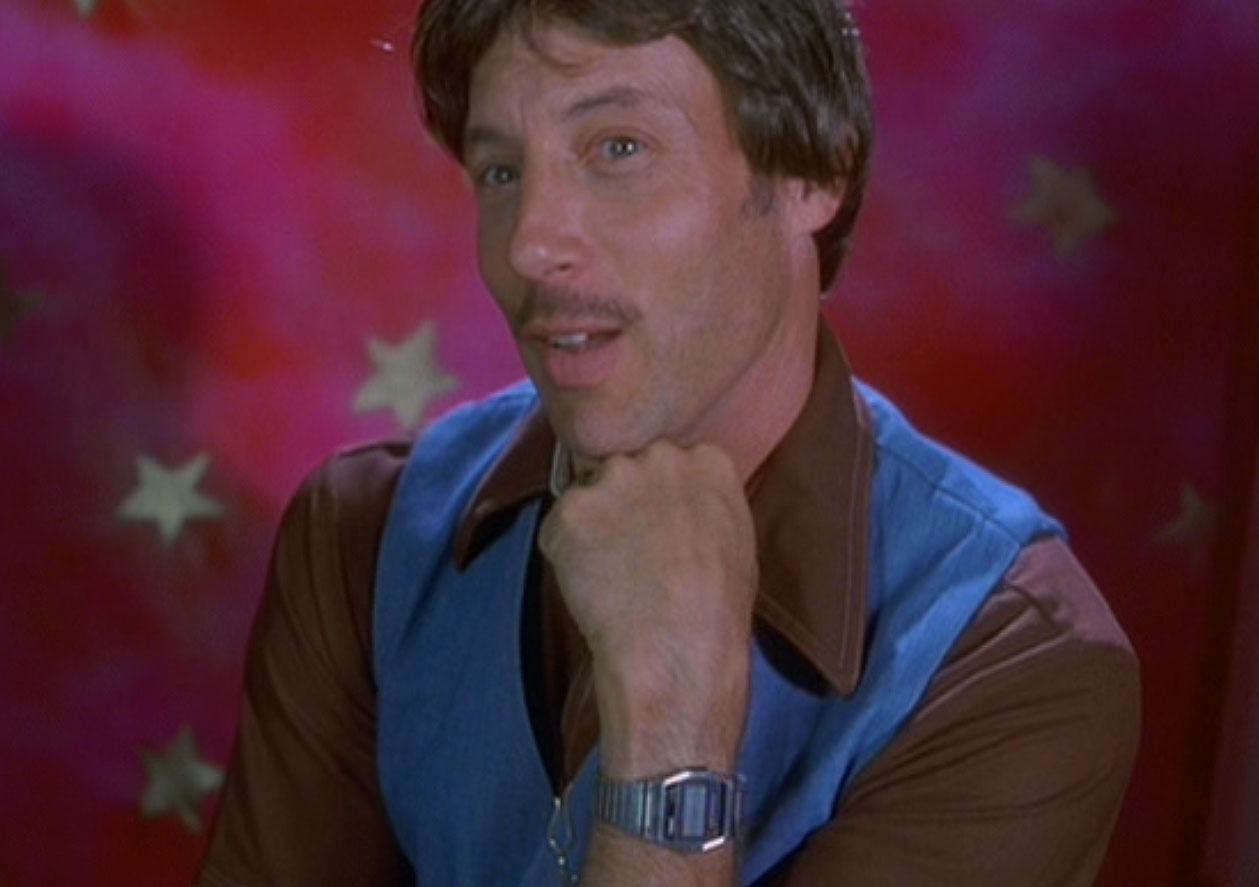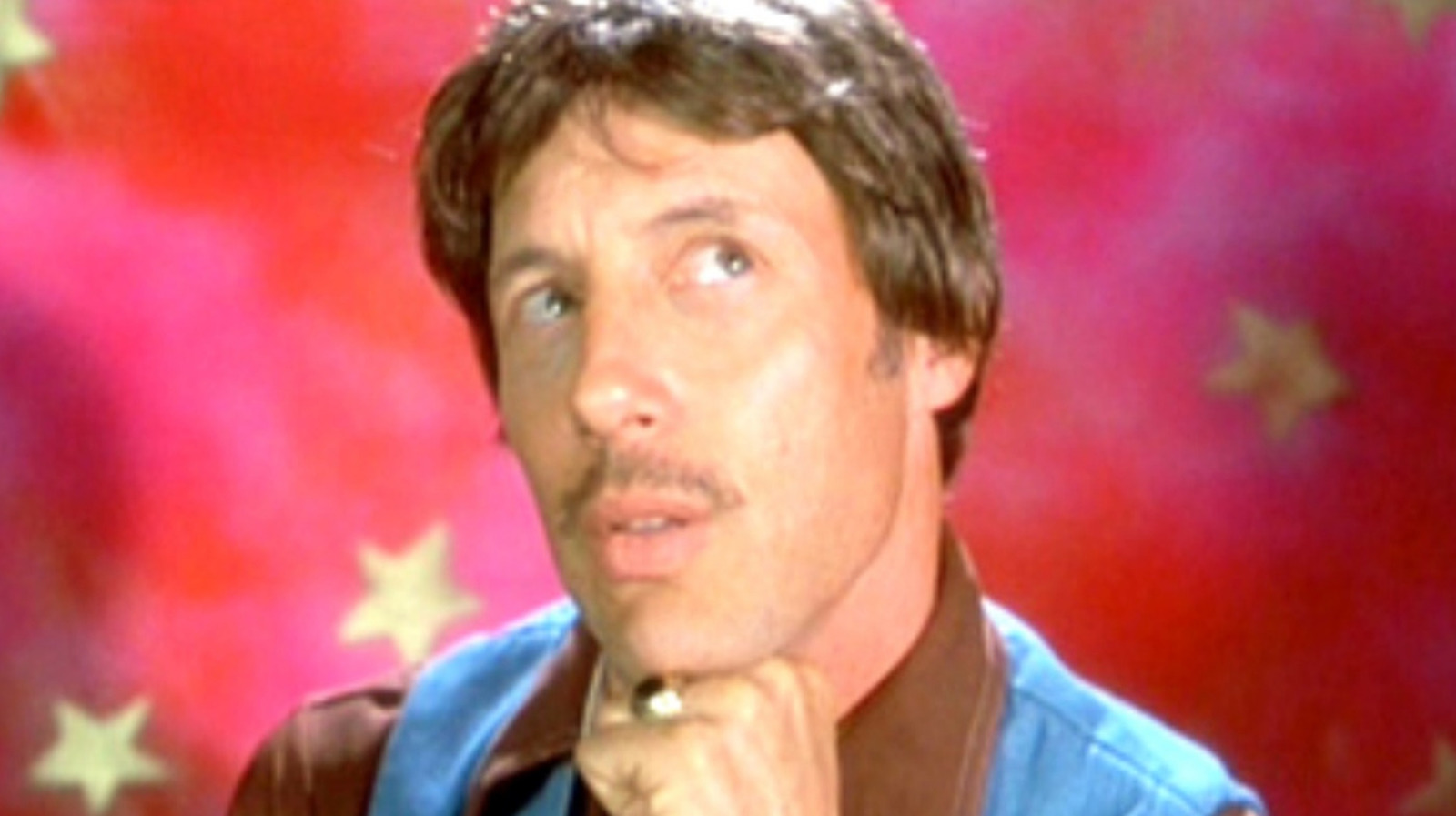Uncle Rico Napoleon Dynamite - A Family Connection
There's a certain warmth that comes with family connections, isn't there? When we think about the people who make up our wider family circle, a particular figure often comes to mind, a male relative who holds a rather special spot. This person is, quite often, someone we call an uncle. It's a term that carries with it a sense of belonging, a link to our parents' side of the family, or perhaps someone who has joined the family through marriage. It's a role that's pretty common in most family setups, and it means someone is a brother to a mother or a father, or maybe the husband of an aunt.
The idea of an uncle, you know, it's more than just a simple label on a family tree. It describes a person who is a sibling of one of your parents, or someone who has married into that direct family line. This individual, quite naturally, becomes the parent to your cousins, adding another layer to the family connections we all share. It's a simple, yet rather important, way we name and understand the different parts of our extended family, giving a clear spot to those who fit this description. So, it's almost a foundational piece of how we view our relatives.
When we talk about an "uncle," it points to a specific relationship, a person who is the brother of your mother or father. Or, in other cases, it could mean the husband of your aunt. This definition helps us put a name to those family members who are just a little bit outside our immediate household but still very much a part of our lives. It helps us figure out who is who in the bigger family picture, making it easier to understand how everyone connects. And that, in a way, is pretty helpful for keeping track of all those family ties.
Table of Contents
- Uncle Rico - A Biographical Look at the Uncle Figure
- What Makes Someone an Uncle in the Context of Uncle Rico Napoleon Dynamite?
- How Does the Name "Uncle Rico" Fit This Family Connection?
- What Are the Different Ways to Be an Uncle, Like Uncle Rico Napoleon Dynamite?
- Is There a Special Bond with an Uncle? A Look at Uncle Rico Napoleon Dynamite
- What Does It Mean to Become an Uncle? A Reflection on Uncle Rico Napoleon Dynamite
- How Do We Use the Term "Uncle" in Everyday Talk? Thinking About Uncle Rico Napoleon Dynamite
- What Is the Wider Idea of an Uncle Through the Lens of Uncle Rico Napoleon Dynamite?
Uncle Rico - A Biographical Look at the Uncle Figure
When we hear a name like "Uncle Rico," it instantly brings to mind a specific family role, doesn't it? The word "uncle" itself carries a whole set of definitions and expectations. It's a title given to a male relative who is, first and foremost, the brother of one's mother or father. This is the most direct and common way someone becomes an uncle. It's a blood tie, a direct link to the generation above you, sharing a parent with your own mother or father. So, in some respects, it's a very clear-cut family position.
Beyond that primary definition, an uncle can also be someone who has joined the family through marriage. This means he might be the husband of a parent's sibling, which would be your aunt. So, he's not related by blood in this instance, but he's still very much a part of the family unit, connected through a spouse. This expands the idea of who an uncle can be, showing that the title isn't just about shared genes but also about shared lives and connections. It's a rather inclusive term, really.
The term "uncle" also means that this person is the parent of your cousins. This makes the family web even more interconnected. Your cousins are your uncle's children, creating another layer of relationship within the extended family. This adds to the sense of a collective, a larger group of people who are all linked together. It's quite interesting how one word can describe so many different family connections, isn't that something?
Personal Details and Bio Data of the Uncle Figure
| Family Role | Male relative, brother of a parent or husband of a parent's sibling |
| Primary Connection | Direct blood relative (parent's brother) or by marriage (aunt's husband) |
| Relationship to Cousins | Parent of one's cousins |
| Family Unit Inclusion | Part of the extended family structure |
| Naming Convention | Often used as a personal address, like "Uncle Rico" |
| Cultural Significance | Can represent a figure of support, fun, or unique personality within the family |
What Makes Someone an Uncle in the Context of Uncle Rico Napoleon Dynamite?
What exactly makes a person an "uncle"? Well, the basic definition tells us it's a male relative who is a sibling of one of your parents. This is the most straightforward way someone becomes an uncle. They share a mother or father with your own parent, making them a direct family member in the generation above you. This connection, you know, is pretty fundamental to how families are set up. It’s a very clear link in the family chain, actually.
Then there's the other way, which is through marriage. An uncle can also be someone who is married to a sibling of your parent. So, if your aunt marries someone, that person becomes your uncle. This shows that the title isn't just about blood ties; it also includes those who join the family through partnership. It's a way of expanding the family circle, bringing in new people who become part of your wider group of relatives. This means the definition is a bit more flexible, as a matter of fact.
And, naturally, an uncle is also the parent of your cousins. This is a pretty important part of the definition too. Your cousins are the children of your uncle or aunt, so your uncle is the father of those relatives who are your age or close to it. This connection really solidifies their place in the family, linking them to another generation within the same family line. It's a way of showing how everyone is connected, more or less, through these various relationships.
How Does the Name "Uncle Rico" Fit This Family Connection?
When we hear the name "Uncle Rico," the "uncle" part of it immediately tells us a lot about his place in a family. It suggests he's either the brother of someone's mother or father, or perhaps the husband of someone's aunt. This is how the word "uncle" typically works, giving a clear label to a specific family position. The name itself, you know, carries this meaning right there in the title. It's a pretty direct way to signal a family role.
The fact that someone is called "Uncle Rico" means they are recognized as a male relative within an extended family. This recognition, or how they are known, is quite important for how people understand their connection. It's not just a casual term; it defines a relationship. So, the name helps to place him within a specific family structure, showing that he belongs to a particular family group. It's a simple yet effective way to categorize someone's family standing, you know, for all to see.
This naming convention, like "Uncle Rico," also suggests a certain familiarity and closeness that often comes with this family role. It's a way of addressing someone that implies a personal connection, rather than a formal title. It's a common way people refer to these relatives, making them feel like a more approachable part of the family. And that, in a way, is a very human aspect of family names, isn't that right?
What Are the Different Ways to Be an Uncle, Like Uncle Rico Napoleon Dynamite?
There are a few ways someone can become an uncle, and each path defines their specific connection to the family. The most common way, as we've talked about, is being the brother of one's father or mother. This is a direct family tie, a shared parentage with one of your immediate caregivers. This kind of uncle is, you know, often seen as a very core part of the family, a natural extension of the parental line. It’s a pretty straightforward family link, actually.
Another way to be an uncle is by marrying into the family. This means being the husband of a sibling of one's mother or father. So, if your aunt gets married, her husband becomes your uncle. This relationship, while not by blood, is still very much a part of the family unit. It shows how families grow and connect through unions, bringing new people into the fold. This expands the idea of what an uncle can be, basically, showing that family isn't just about genes.
The dictionary definitions often include both of these pathways, showing how broad the term "uncle" can be. It's a word that covers both direct blood relatives and those who join through marriage, all of whom hold a similar position within the extended family. This inclusiveness is pretty important for how we understand family structures in general. It means the role is quite versatile, in some respects, accommodating different life paths.
Is There a Special Bond with an Uncle? A Look at Uncle Rico Napoleon Dynamite
Often, people talk about a "favorite uncle," and this suggests there can be a rather special connection with this family member. Your favorite uncle, for example, might be the one who teaches you a new skill, like how to play a game of chess, or maybe takes you on exciting outings, like trips to amusement parks. This kind of relationship goes beyond just the family tree; it involves shared experiences and personal connections that can make a big impact. So, it's not just a title, but a role that can bring a lot of joy, you know?
This special bond often comes from the unique position an uncle holds. They are part of the older generation, but often a bit less burdened by the daily responsibilities of parenting, which can allow for a different kind of interaction. They might be seen as a source of fun, a confidant, or someone who introduces you to new ideas and activities. This makes the relationship feel a little different from those with parents, offering a distinct kind of support and enjoyment. It’s pretty unique, actually, in the family setup.
The idea of a "favorite uncle" highlights that these relationships are not just formal connections but can be deeply personal and meaningful. It's about the memories created, the laughter shared, and the guidance offered. This shows that the role of an uncle can be very influential in a person's life, shaping experiences and perspectives. And that, in a way, is a rather lovely aspect of family, isn't it?
What Does It Mean to Become an Uncle? A Reflection on Uncle Rico Napoleon Dynamite
The phrase "I've just become an uncle" signals a new phase in a person's life, a fresh family role. This happens when a sibling has a child, and suddenly, you're not just a brother or sister anymore; you're an uncle. It's a moment that can bring a lot of excitement and a new sense of responsibility, even if it's not the same kind of responsibility as being a parent. So, it's a pretty big deal for many people, you know, a new chapter.
Becoming an uncle means you now have a niece or nephew, and this creates a brand new family connection. You are now part of their extended family, a male relative from their parent's side. This new relationship often comes with the joy of seeing a new life enter the family and the chance to be a supportive figure as they grow up. It's a role that can be very rewarding, offering a different kind of love and connection. It’s a rather special feeling, actually, to welcome a new family member.
This shift into uncle-ship, or the state of being an uncle, marks a personal milestone. It signifies a deepening of family ties and an expansion of one's own identity within the family structure. It’s about being part of the next generation's journey, offering guidance, fun, or just a listening ear. And that, in a way, is a pretty significant step for anyone who experiences it, really.
How Do We Use the Term "Uncle" in Everyday Talk? Thinking About Uncle Rico Napoleon Dynamite
How do we actually use the word "uncle" in a sentence? It's pretty straightforward, actually, and very common in everyday conversation. For example, you might say, "I'm going to visit my uncle," which shows a planned interaction with this family member. This simple phrase tells us a lot about the casual yet important place uncles hold in our lives. It’s a very natural way to talk about family, you know?
We also use it to describe a new family status, like "I've just become an uncle," as we discussed. This shows the word's utility in marking significant life events within the family. It's a direct way to communicate a change in one's relationship to the younger generation. So, it's a practical word that helps us share news about our family, pretty much, with others.
The term "uncle" is also used in dictionary definitions to explain its meaning, such as "the brother of someone's mother or father, or the husband of someone's aunt." This shows its foundational role in language for describing family connections. It's a word that's deeply embedded in how we understand and talk about our relatives, making it a very useful part of our vocabulary. And that, in a way, makes it a truly essential word for family discussions, isn't it?
What Is the Wider Idea of an Uncle Through the Lens of Uncle Rico Napoleon Dynamite?
An uncle is a name used in an extended family, not just the immediate household. This means the term helps us organize and understand the larger network of relatives beyond just parents and children. It's a label that helps define connections across multiple households and generations, making the family tree feel more complete. So, it's a very helpful term for mapping out those broader family ties, you know, for everyone involved.
This dictionary definitions page includes all the possible meanings, example usage, and translations of the word "uncle," showing its comprehensive nature. It covers every angle, from blood relatives to those who join through marriage, and how the term is used in sentences. This really highlights how versatile and widely understood the word is across different contexts. It's pretty much a universal family term, actually, in many ways.
The idea of an uncle also ties into the concepts of nephew (male) or niece (female). That person is the uncle's nephew or niece, creating a reciprocal relationship. This shows that the term "uncle" isn't just about one person; it's about a pair of connections, a give and take between generations. It's a way of showing how everyone in the family is linked to someone else, forming a complete picture of relationships. And that, in a way, is a very neat aspect of how families are structured, isn't that right?
To sum things up, the word "uncle" describes a male relative who is either the brother of your mother or father, or the husband of your aunt. This person also becomes the parent of your cousins, creating another layer of family connection. The term is used to identify these individuals within the wider family group, helping us understand our family tree. Becoming an uncle means taking on a new role with a niece or nephew, and often, these relationships can be very special, bringing unique bonds and shared experiences. It's a word we use daily to talk about these important family members, showing its common use and widespread recognition.

Napoleon Dynamite Uncle Rico Quotes. QuotesGram

Whatever Happened To Uncle Rico From Napoleon Dynamite?

Napoleon Dynamite Uncle Rico Quotes. QuotesGram